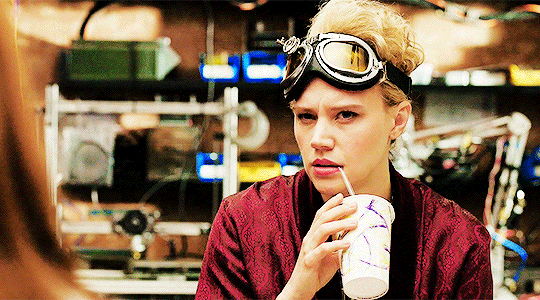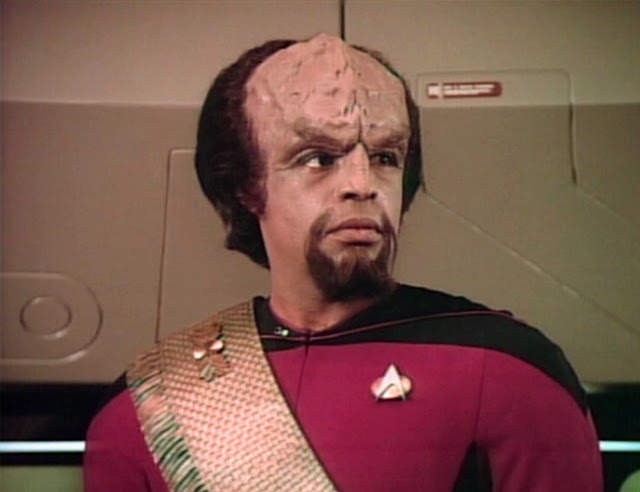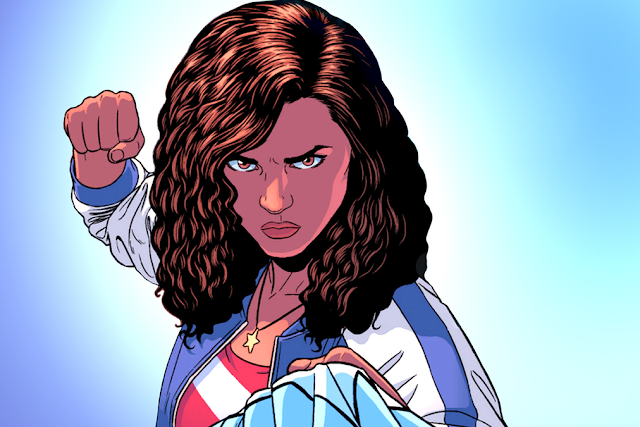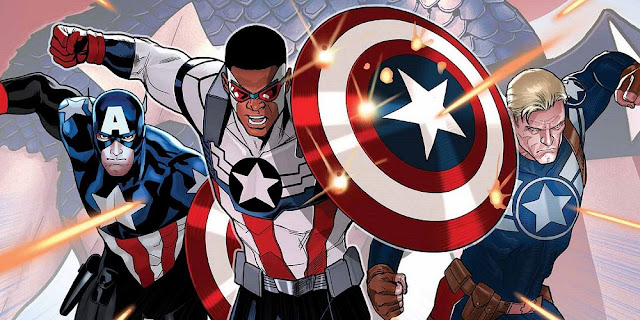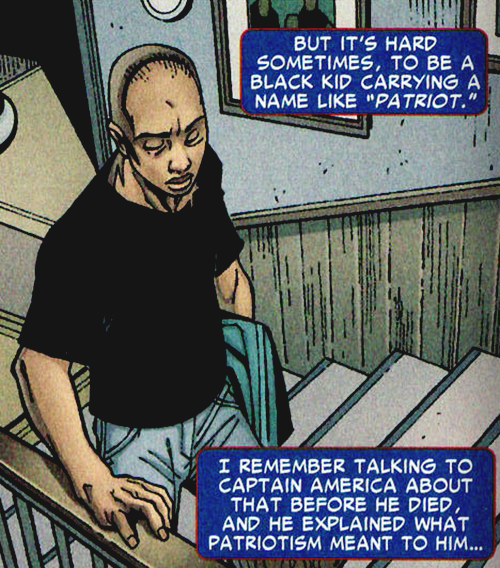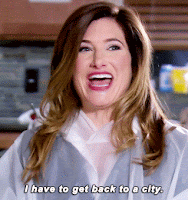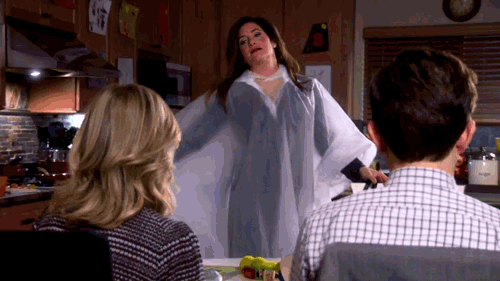Okay chickadees, it's official. After months of job-hunting and looking for the absolute perfect fit, after getting rejected from all of the universities I applied to and having to deal with the ensuing mild depressive state, and after a whole hell of a lot of "what on earth do I actually want to be doing with my life/time?" searching in the past six months, I would like to announce that I, your fearless leader, have a job. And I'm really excited about it.
It's not, as I thought it would be, a writing job, but instead a more practical office management-y job working for a non-profit here in Boston. I'm really glad to have it and I can't wait to get to work and feel like I'm helping save the world just a little. But. There are some downsides to suddenly having full-time employment again.
You might have noticed that the blog hasn't been updating as much as usual for the past few months. That's nothing against any of you, but rather a reflection of my life. It's been busy around here. Insanely busy. Between my job search and all my freelance gigs, as well as caring for my family and a few fun little crises that came up, I just haven't had the time to consume much media, let alone write about it. I haven't been posting because, by and large, I haven't had anything to say.
All of this (and the fact that I leave this afternoon for a long-in-the-works trip to Iceland) means that I'm putting Kiss My Wonder Woman on hiatus until September. I want to give myself time to enjoy this vacation then time to really settle in at work. I'll be moving around then too, so I want to be able to focus on the real-life problems in front of me without worrying that I'm not updating enough.
I will, however, be back.
I wondered about this for a long time, actually, if maybe it was time to hang up my hat and give KMWW a break. If not getting into grad school wasn't a sign that I ought to do something else with my time. But having really considered it and thought it through, I've realized that, no, I like it here. I want to stay.
This is thanks in no small part to all of you - your comments (the nice ones), your funny emails, your genuine interest in the topics we discuss. You've made this site a place I want to come back to, so thank you.
It's also, though, because I saw Ghostbusters this weekend and I realized that as much as I sometimes get tired or feel like I've said everything that I could possibly say about media and pop culture, there's a reason we do this. It's to make movies like Ghostbusters.
I'm not going to do a full review here (maybe I will when I come back in the fall), but suffice to say that Ghostbusters was great and it reminded me why what we do here on KMWW is important. A movie like this couldn't have happened ten years ago, maybe not even five years ago, but now it can and that's awesome. Like the franchise or not, this is a movie about four brilliant women working together to save the world, not a romantic subplot or sexualizing comment in sight. Three of them are in their 40s. Two are plus-sized. One is African-American. One is (probably) gay. Together they save the city because the city needs to be saved.
And all along the way they get to be funny and gross and stupid and ugly and insecure and angry and violent and obnoxious. They don't have to be hot for the movie to work, in fact their hotness is in no way relevant to the plot. Their story is about women fighting to be taken seriously in a world that wants to discredit them, and I genuinely got swept up in it.
(So if you're wondering if you want to see Ghostbusters, please do.)
Watching Ghostbusters reminded me that the entire reason we talk about movies on here, the reason we talk about any pop culture, is to make stories like this possible. By drawing attention to the gaps in our cultural consciousness, we make room for stories like this to be made and to succeed. I'm not saying that KMWW was responsible for Ghostbusters, because I am not filled with delusions of grandeur, but I am saying that what we do is important and worth doing.
Anyway. All of this is to say that for a variety of reasons, KMWW and I are going on hiatus. But we'll be back. I've already started collecting things to talk about again, from Jillian Tamaki's Super Mutant Magic Academy to this awesome French spy show called Au Service de la France to Ghostbusters and Star Trek and Suicide Squad. I'm going to miss all of you, and I appreciate you sticking with me through the crazy.
See you on the other side.
Today's Masculinity Monday comes to us from guest writer Trey Stewart. Trey's previous posts for us include SFC Fridays on Nimah and Raina Amin and Alex Parrish from Quantico, as well as a recent post on the importance of The Flash's Joe West.
In my first ever post for Masculinity Monday I talked about (non)toxic masculinity as reflected in the three main male characters from Star Trek: The Original Series. Today, I am shifting gears to the Next Generation era to discuss Klingon masculinity as it is embodied in Worf (Michael Dorn). Since his debut in the first episode of Star Trek: The Next Generation, Worf has been a space-time explorer, diplomat, and influential figure in Klingon politics. Worf has been described as the ultimate Klingon.
But he's also been a fascinating character to consider as an example of how to live in a hyper-masculine society. And on top of all of this, he appears to our eyes to be an African-American man, despite the science fiction conceit that Klingons don't adhere to human concepts of race. So here we have a large, physically imposing black man from an alien warrior race acting out and thinking through the ramifications of modern masculinity. I think you can see where we're going with this.

Before I share what makes Worf an interesting portrayal of masculinity, though, I should probably give you a bit of background on the Klingons in case you aren’t as obsessed with Star Trek as I am. Basically, it's interesting to look at Worf, the ultimate Klingon, as an expression of masculinity because Klingon society is in essence a big bubbling stew of traditional masculine stereotypes. Klingons are known as the prototypical proud warrior race. They are barbaric and have an aversion to both bathing and doctors. Klingon gender norms dictate that everyone grows up to be a warrior. Nonetheless, Klingon society is highly patriarchal.
The Star Trek franchise covers an in-universe period of 228 years of contact with Klingons. During this period of fake history in a made up story, the Klingon Empire was somewhat in decline. A few decades before humans made first contact with the Klingons, the warrior caste gained control of Klingon society. This fact shapes both Star Trek humanity’s interaction with Klingons and Worf’s upbringing as a Klingon. So.
Prior to Worf’s introduction, Star Trek had not done much to explore Klingon culture. Klingons were basically communists in space. They served in the original series, which aired in the commie-phobic 1960s, as a sort of catch-all villain. They were meant to be threatening and menacing and uncomplicatedly bad, a convenient fall guy who was always stirring the pot. But when Star Trek: The Next Generation came around in the 1990s, the Cold War was over and people were willing to consider a more compassionate and comprehensive view of Klingon culture. Hence how Worf became a part of the crew and the show took on a long storyline about the integration of the Klingon Empire into the Federation.
I know. That's a lot of nerd.
So Worf was born on the Klingon homeworld. At age five, he moved to the Khitomer colony. Khitomer had been the site of the signing of the treaty that made the Federation and the Klingons allies. Shortly after Worf moved to Khitomer the colony is attacked by aliens. Subsequently, humans raised him. This means that our hero is a child of cross-culturalism, and it also means that for all that Worf fits the masculinity prescribed by Klingon culture, he wasn't entirely raised in it. And that's important.
When we meet Worf aboard the Enterprise at the start of Star Trek: The Next Generation, then, he has spent most of his life among humans. His parents had tried to honor his Klingon culture, but Worf gives the impression of having something to prove. At this point he is a junior bridge officer. He spends most episodes just suggesting that the Captain should be more aggressive in dealing with his problems.
But Worf is not just a warrior. Even in his early experiences aboard the Enterprise we see that Klingons, and therefore Worf, have a code of ethics centering on honor. Early in his time on the Enterprise, the best way to describe Worf is insecure. He doesn’t seem quite confident that he is a real Klingon and this affects his sense of his own masculinity.
Worf’s first step toward becoming his own man occurs when the Enterprise makes contact with a Klingon sleeper ship (the crew had been in suspended animation for decades) that was launched when the Federation and the Klingons were still at war. At first violence seems like the only way to keep the Klingons from attacking the Enterprise and nearby Federation outposts. Surprisingly then, Worf is the one to diffuse this simmering threat in a way that is both completely non-violent and also pretty tricky.
He comes up with a plan in which he and the half-Klingon emissary that had been sent to help resolve the situation pose as the captain and first officer of the Enterprise. In this temporary position of command, Worf is able to talk the Klingons out of attacking. The emissary then supervises the Klingons' assimilation to their new time period. By showing these Klingons that a fellow Klingon now captains a ship for the Federation, he is able to grant them representation and a feeling of acceptance, making them able to put down their weapons and end the war.
Worf’s influential role in Klingon politics begins to evolve here, and it continues when a rival Klingon, Duras, accuses Worf’s father of assisting the aliens that attacked Khitomer. In the process of fighting these allegations, Worf exposes a cover up of the true traitor’s identity. In other words, Worf discovers that his fellow Klingons were not as honorable as they seemed. It's a hard blow for a man who has built his entire life on believing the best about his race. Suddenly Worf is forced to accept that while there is a lot of good in Klingon culture, it's not all good either. And if he wants to be an honorable man, that's great, but he's going to have to decide what honor means for himself.

While violent, Worf’s involvement in Klingon politics is motivated by a sense of honor as an abstract moral principle. To a degree, Worf’s actions can be seen as steering Klingon society back to the way it was before humans made contact with the Klingons. By doing this, he attempts to right the toxic elements that have crept into their culture without allowing the society to go back to its old isolationist ways. Worf’s life provides some insight into confronting toxic masculinity both within a society and from the outside.
During much of Worf’s life, Klingons were more focused on maintaining a reputation of strength than the ethical demands of honor. As a result, the Klingons suffered through a civil war, engaged in a needless conflict with a neighboring power, and abandoned longstanding alliances. Klingon masculinity during this period was both unhealthy and similar to the “traditional” view of masculinity in contemporary US society.
While he doesn't talk much in terms of masculinity exactly, Worf’s status as an insider in Klingon culture makes him well positioned to confront its toxic elements. As a man also raised outside the society though, he's better able to identify what those toxic elements actually are.
In a word, Klingon masculinity is fatalistic. If I were Worf’s commanding officer, I could see myself having some direct but respectful conversations with him about matters such as women’s roles, the value of medical care for a warrior, and the drawbacks of ritual suicide. Worf has contemplated suicide on at least one occasion. It's clear that Worf has some ideas and cultural beliefs that don't jibe with our ideas of what makes for a healthy society.
But it's not all bad either. That's what's so interesting about Worf. Because he is able to pick and choose through Klingon culture to find what is worth preserving, we get to see that there really is value there. Sort of like how we, in picking and choosing what to keep of American traditional masculinity, find lots of things not worth losing just because there are other things we need to cut out.
It's also important to think of Worf as a character with his race worked in. Like I said above, the color of Worf's skin doesn't matter in the story of the show as Klingon's don't ascribe to human racial differences, but it does matter in the context of the show being on television. Just like Worf's representation as a "captain" in the Federation helped those stranded Klingons assimilate, seeing him on the television screen every week helped African-American kids see themselves reflected in the culture.
Worf's struggles to understand and appreciate Klingon culture, as well as his struggles to fit in on the starship, find romantic love, and navigate his own past and family history, all make for a compelling story about redemptive masculinity. But they're also all stories that feel familiar to African-American audiences watching this strange, gruff, alien man working through his problems. Worf matters because he represents so much, and he's worth celebrating because he doesn't just sit in this stew of complexity. He gets up and makes his own understanding of honor. He learns how to be a good man and a good Klingon and how to be both at once.
Thanks to the reboot, we don’t know much about Worf’s future, but in the old timeline we know that he has a good life. Following his time as an ambassador, Worf serves on the Enterprise-E, the successor ship to the one shown in Star Trek: The Next Generation. Beyond that, depending on the timeline, Worf is either a general, colonial governor, or member of the Klingon High Council. Whatever he is doing, he is serving with honor.
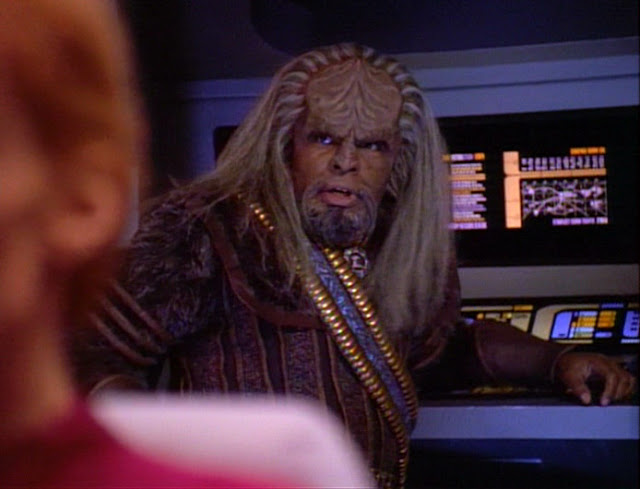 |
| Old!Worf |
Trey Stewart has his PhD in Educational Psychology from the University of Alabama. He recently started his own education research consulting/tutoring business.
Well chickadees, we've made it to the middle of the year. Good job to all of us. It was hard and sometimes the downright shitty state of the world made it even harder, but we made it here. In the United States today is our "Independence Day", and whether you think there's any basis in this particular date or the specifics of how we celebrate* or not, today is a pretty good day to think about the bigger issues in life.
Last year I took a moment on this blog to write about patriotism and what it means for me to call myself a patriot. Now, to the outside world I think I don't really come off that way. I'm deeply critical of my country, I refuse to say the pledge of allegiance, and I spent most of high school and college marching on Washington. By conventional wisdom I'm not much of a patriot, and by conventional understanding I probably shouldn't be super into the Fourth of July and Independence Day.
But here's the thing: for me patriotism is about believing that your country can be better than it is. It's about the kind of love that demands more, that demands the object of that love be more and strive for excellence. I love my country, and that's why I protest and I criticize and I write thinkpieces and I sign petitions. I want my country to be what it promises, to really be the "land of the free and the home of the brave" and I refuse to be satisfied with where we are now.
We can be better, and we have to be.
I thought long and hard about what, if anything, I should post for you today, and eventually it came to me that the best way I can think of to celebrate not just America but the America that ought to be is by looking at the heroes we've chosen to represent us. The characters who fit into our collective imaginations and wear our stars and stripes. Our Captains America if you will.**
Obviously we have Steve Rogers, the original Captain America, to start us off. Steve might be currently getting dragged through the mud in the comics (yuck), but let's remember that his story is one of the son of poor Irish immigrants overcoming his physical disabilities and the systemic classism and anti-Irish racism of the time to be a hero and fight for his country. Even though his country wouldn't fight for him.
But we also have Bucky Barnes and Sam Wilson wielding the shield too. Bucky who underwent years of brainwashing and torture to come out the other side as a man still capable of standing up to be a hero. He represents our resilience as a nation and our ability to heal. Sam Wilson, on the other hand, represents the best of us, plain and simple. A civil rights activist and para-rescue soldier, Sam embodies everything that does make America great right here and now. Our strength, our compassion, our willingness to listen and fight for what's right.

It doesn't stop there either. Peggy Carter has now picked up the shield and the legacy to become an alternate-universe Captain America in the upcoming videogame from Marvel. The story has her undergoing Project Rebirth when Steve is assassinated before he can undergo the treatment. Peggy then becomes a symbol of what it means to be a woman in this country, an immigrant who has chosen her nation and committed to it, a woman who refuses to let anyone stand in the way of her desire to fight the good fight.
We also have Isaiah Bradley, the first black Captain America, the man on whom Project Rebirth was tested before it even got to Steve Rogers. Isaiah might have been forgotten by history, but he still fights, he still does the right thing, and he teaches his children and his grandchildren to do the same. He even inspires his grandson, Elijah Bradley, to take up the family tradition and fight as Patriot.
And last but not least there's Miss America Chavez, the Afro-Hispanic teenager who in a lot of ways best expresses what it means to be a patriot today. America doesn't always like her country, but she loves it. She fights for it even while she fights it. She might be young and kind of brash sometimes, but she's go
t a good heart. She's and Eli are the next generation of the stars-and-stripes superhero collective, and while they're angry about the injustice of their country, they also know that it's always worth it to try to make your country better.
Happy Fourth of July, everyone.
*Mostly by drinking, overeating, and blowing things up. It's how we celebrate literally every holiday. We celebrate the start of Lent this way.
**After much deliberation and discussion, the verdict is that the plural of "Captain America" is "Captains America" like "Attorneys General" or "Surgeons General". Thanks, The West Wing!
Truth be told, I'm ambivalent about having kids. While I actually really enjoy children in small doses, and I did spend a couple of years interacting with them in very large doses, I don't know if that translates into wanting to be a mother. Most of the time I'm more worried about getting my own shit dealt with - I don't know if I want to spend five years worrying about literal shit.
On the other hand, I'm not entirely against the idea. I know I'd be a good mother, I know I'd probably even enjoy it most of the time.* But does that mean that I need to plan my life as if I'm going to have kids on the off chance that I either wake up one day with some serious baby-fever or I wake up pregnant? I'd rather not. I don't want the CGI baby from Ally McBeal to haunt me for the next ten years. That thing is horrifying.
In times like this and with questions like this, my general go-to is fiction. Isn't that true for everyone? I look around and see if there are any stories that will help me figure it out, help me figure out how I feel and what I want and if it's okay for me to feel and want those things. Unfortunately, when it comes to this issue, the examples I can find are alarmingly one-sided.
I'm definitely not the first person to point this out, but as far as I can tell, American media must have a vested interest in a population boom. How else can you explain the fact that there are almost no (zero, zip, zilch, none) female characters on mainstream television shows who just plain don't want kids.
There are characters who tragically can't have kids, characters who never thought about it mysteriously end up with kids, and characters who don't want kids but then get pregnant and change their minds immediately, but when you try to sit down and think of female characters who straight up do not want children, the mind draws a blank. Even more, it's bafflingly difficult to think of characters who don't want children and are never told that they're wrong for thinking that. Characters who even dislike children but aren't the villain.
Like I said, alarmingly few of those.
No, instead we get tropes like the busy career woman who doesn't like children and can't play with a kid when presented with one but who by the end of the season or the movie or whatever is all over kids and loves them and is happily engaged in good, moral motherhood. We get women who seem to have made their minds up about this kid thing only to be told, effectively, that no, they were wrong, and the story is going to make sure they regret their terrible kid-hating ways.
Hell, accidental pregnancy is an entire genre now, with whole stories devoted to forcing women to have unplanned children that they must by narrative constraint adore and fall in love with the fathers of. Aside from Obvious Child, which was great and you should totally watch, movies and television almost refuse to tell the stories of women who don't want to have children and then just don't have children. Literally all of the female friends on Friends either did get pregnant or wanted to and adopted instead. I'm just saying.
So. This is a long intro. And I'm not trying to imply that there's anything wrong with actually wanting to be a mother. I have a few friends who always wanted to be moms and now they are and they're super happy about it. Hey, whatever works for you. I'm just saying that while the world needs mothers, it needs aunties and friends and sisters and people who can't stand kids too. There's no shame either way.
Which brings us, finally, to today's strong female character: Jen Barkley from Parks and Recreation, one of the few female characters I can think of in American pop culture who can't stand kids, never wants them to even touch her let alone call her mother, and who is never ever punished for this.
In fact, contrary to the usual model where a woman who hates kids must learn to love them or else be the villain, Jen Barkley is a confident, sexy, accomplished woman we're supposed to admire and enjoy. And she really hates kids.
I love her.
If you're not familiar with who Jen Barkley is, though, you're forgiven. A minor character who pops up from season four onwards, Jen (Kathryn Hahn) is a political consultant working out Washington DC who is hired by Leslie's opponent in the race for city council. While Leslie and Ben do manage to beat Jen in that election, it's pretty close and leaves them all with a lot of respect for each other. Jen then offers Ben a job working in DC with her on a Congressional campaign and appears off and on throughout the rest of the show.
In season six, she shows up to give Leslie the pep talk of all time about her political future, concluding with the oddly inspiring line, "You can trust me, because I don't care enough about you to lie." And then in season seven, she blows into town to convince Ben to run for Congress himself and run his campaign. That's where most of our material comes from.
See, when Jen shows up in season seven, it's been a few years since she last really saw Ben and Leslie. No big deal normally, but in this time the Knope-Wyatts have actually had triplets, adorable children who are now rambunctious toddlers. Good for Ben and Leslie, who love having children and are super stoked, but less good for Jen Barkley who hates kids and has to maneuver through a house that looks about as disgusting as you can imagine the home of three toddlers looking.
Jen isn't quiet about her disapproval here, though it's worth noting that she never directly shames Ben and Leslie for their choices.
She makes a lot of comments about being "so happy with my choices", but she doesn't openly tell Leslie she should have tied her tubes or anything rude like that. Instead, she just takes this opportunity to celebrate her singleness and her joy at definitely not having any children.
Parks and Recreation as a whole, actually, is the rare show that manages to avoid insisting that all of its female characters love babies. While Leslie and Ann do both definitely want children (and while the show does become increasingly heteronormative and "pair the spares" as time goes on), April struggles with her feelings about maternity and Donna (who is getting her own article soon, don't you worry) never mentions wanting kids and as far as we can tell never has any.
So this is a show that respects a woman's right to choose if maternity is right for her or not, and even what flavor of maternity to go with. Leslie goes the sitcom route of just finding out she's pregnant at one point, but Ann actually meticulously plans on her pregnancy and for a long time actually intends to go it alone via artificial insemination. Right on.
Still, even with these other characters taking main stage, there's still room to appreciate the relative uniqueness of a Jen Barkley. I mean, she doesn't just not want kids, she really doesn't want kids. She even occasionally seems confused about what kids are. And yet she's never punished for this. We're not told that Jen is heartless or awful, we're not meant to find her off-putting or harsh, she's just a very competent, intelligent, funny woman who thinks the idea of squeezing a watermelon-sized spawn through her vagina is horrifying. And I kind of can't blame her.
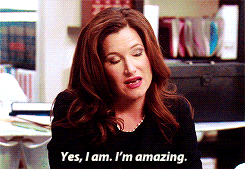 I don't mean to imply that her distaste for motherhood is the only interesting thing about Jen Barkley either. It's also worth celebrating that in her we have an awesome recurring female character who is straight up badass. She's a smooth political operator who charges $1200 an hour just to give advice and who routinely works on national campaigns. She loves what she does, and she doesn't apologize for who she is. She's the kind of confident that makes me want to sit up straight, put on my best death-laser facial expression, and get shit done.
I don't mean to imply that her distaste for motherhood is the only interesting thing about Jen Barkley either. It's also worth celebrating that in her we have an awesome recurring female character who is straight up badass. She's a smooth political operator who charges $1200 an hour just to give advice and who routinely works on national campaigns. She loves what she does, and she doesn't apologize for who she is. She's the kind of confident that makes me want to sit up straight, put on my best death-laser facial expression, and get shit done.
I'm focused on the kids thing because right now, that's what I need a character to be for me. No, me having kids or not isn't a particularly urgent issue, but it's something I think about. A lot of people do. And as much as I enjoy the hell out of Jane the Virgin, sometimes you want a nice sour taste to counteract all that sweet. Sometimes you just want Kathryn Hahn stomping loudly across your television screen reminding you that not everyone likes children and that is perfectly okay.
What I'm saying is that Jen Barkley hates kids, and I love her for it.
*No one enjoys parenthood all of the time. No one. No. One.

